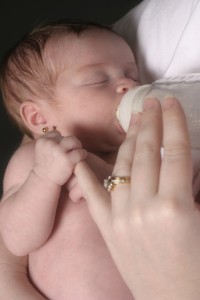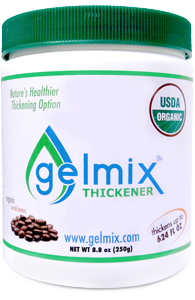Babies spit-up regularly, and rarely does spit-up mark a serious problem for your baby. Reflux is common in infants because the lower esophageal sphincter (what keeps the contents of the stomach from coming back up through the esophagus) takes some time to develop. Especially when babies eat too fast or too much, the contents comes back up. Most of the time, babies experiencing spit-up are otherwise healthy and are not significantly effected by it.
So how can you tell the difference between regular spit-up or “happy spitters” and a more serious problem with reflux?
Some babies with excessive regurgitation develop other problems, which may be due to gastroesophageal reflux disease (GERD). When excessive spit-up prevents the infant from feeding and receiving the nutrients they need from their diet, there is a more significant problem. GERD can in turn cause other problems, such as failure to thrive or poor weight gain, esophagitis or inflammation of the esophagus, and breathing difficulties.
Some signs of trouble include:
- Frequent or excessive vomiting or projectile spit-up
Green or yellow
- Food aversion, refusal to eat or difficulty swallowing
- Inconsolable crying or visible discomfort during feedings
- Chronic cough , wheezing or breathing difficulties
If you suspect your baby has a problem with reflux, it is always a good idea to check with your doctor for a diagnosis. Treatments usually depend on the underlying cause of the problem. You can learn more about common ways to reduce spit-up here.

